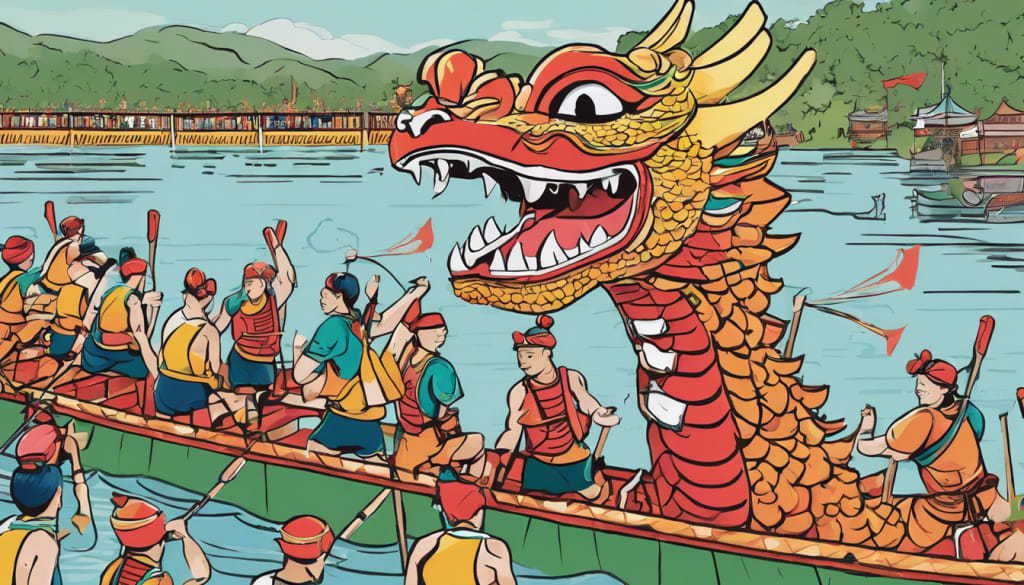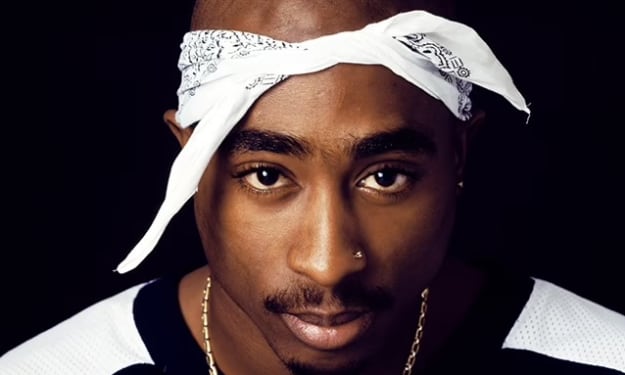Dragon Boat Festival Denver: Everything You Need to Know
Dragon Boat Festival

The Dragon Boat Festival, a spectacle of color and competition, takes root in Denver, bringing with it a flurry of paddles, the ornate dragon heads and tails adorning the boats, and the rich traditions that span millennia. This festival, far more than a thrilling display of dragon boat races, embodies a deep cultural heritage that merges the ancient with the contemporary, offering a captivating experience for participants and spectators alike. In Denver, this event not only showcases the athleticism and teamwork of the paddlers but also serves as a bridge, connecting diverse communities through shared celebrations of culture, food, and art.
This article delves into the history and origins of the Dragon Boat Festival, tracing its roots back to ancient China and the legendary tales of loyalty and sacrifice. It will explore the modern celebrations around the world, highlighting how cities like Denver have embraced this festival, making it their own with local flavors and customs. From the traditional dragon boat racing in Denver to the cultural practices that envelop the event, such as making zongzi, wearing silk colors, and participating in various dragon boat festival activities, the article will provide a comprehensive overview. Furthermore, it will shed light on the impact and significance of the festival, emphasizing how it fosters community bonds, celebrates nature's harmony, and contributes to cultural continuity and evolution. Whether you're a seasoned paddler or a curious onlooker, this guide will offer everything you need to know about the Dragon Boat Festival in Denver.
History and Origins of Dragon Boat Festival
The Dragon Boat Festival, known as Duanwu Jie in Chinese, traces its origins back over 2,000 years to the Warring States period of ancient China. This festival is deeply rooted in the lore surrounding several historical figures, each associated with the traditions of dragon boat racing and the making of zongzi, a traditional Chinese rice dumpling.
Ancient Roots and Traditional Significance
The festival is traditionally held on the fifth day of the fifth lunar month, a time historically considered unlucky. To counteract this, ancient practices included dragon boat racing and placing protective herbs at home. These customs were believed to ward off evil spirits and disease, fostering a sense of community and cultural identity through shared rituals [15][21].
Legends and Heroes: Qu Yuan, Wu Zixu, and Cao E
Qu Yuan is the most celebrated figure associated with the Dragon Boat Festival. A loyal advisor who was exiled by his king, Qu Yuan drowned himself in the Miluo River in despair over the invasion of his state. To protect his body from being consumed by fish, locals paddled out on their boats, throwing rice into the water, which is said to be the origin of zongzi [17].
Wu Zixu, another prominent figure, was a loyal official of the State of Wu who was forced to commit suicide after falling out of favor. His death is also commemorated during the festival, particularly in regions like Suzhou where he is revered as a god of the waves [14].
Cao E's story is one of filial piety; after her father drowned, she tragically died trying to retrieve his body from the river. Her sacrifice is honored in the Shaoxing area, where the festival also remembers her devotion [19].
These stories not only enrich the festival's cultural tapestry but also underscore the enduring values of loyalty, sacrifice, and remembrance that are central to the Dragon Boat Festival.
Modern Celebrations Around the World
Dragon Boat Racing
Dragon boat racing, a tradition with roots extending over 2,000 years, has evolved into a globally recognized sport, characterized by teams vigorously paddling in unison to the beat of a drum. This sport, originally a form of dragon worship to solicit rain and good fortune, now thrives far beyond its origins in southern China. Modern materials like fiberglass have replaced traditional teak in the construction of dragon boats, which are adorned with vivid dragon heads and tails during races [24].
Global Locations: Boston, Buffalo, Colorado, etc.
The Dragon Boat Festival's reach extends across continents, with significant celebrations in cities like Boston, Buffalo, and Denver. Boston's festival is the oldest in the United States, starting in 1979 and growing into a major cultural event with a vibrant mix of races and Chinese cultural performances [20]. In Buffalo, the festival emphasizes community and teamwork, drawing participants from various sectors including businesses and emergency responders [21]. Denver's Colorado Dragon Boat Festival, marked by its grand scale and inclusive activities, stands as a prime example of the festival's adaptability and importance in cultural exchange [19]. Each location, while celebrating the same festival, showcases unique elements that resonate with local communities and contribute to the festival's rich, multicultural tapestry.
Cultural Practices and Activities
Traditional Foods: Zongzi and Realgar Wine
During the Dragon Boat Festival, consuming zongzi, sticky rice dumplings wrapped in bamboo or reed leaves, is a revered tradition. These dumplings vary regionally; in northern China, they are typically filled with jujube, while southern variants may contain sweetened bean paste, fresh meat, or egg yolk [29]. The preparation of zongzi is a meticulous process involving soaking glutinous rice and wrapping it in leaves, a custom that persists not just in China but also in Korea, Japan, and Southeast Asia [30]. Realgar wine, another festival staple, is believed to have detoxifying properties that ward off evil spirits. Historically, this wine was used for painting children's foreheads with the Chinese character '王', symbolizing protection and health, a practice rooted deeply in the belief that it would repel poisonous creatures and prevent diseases [30].
Five-Colored Silk and Other Customs
The use of five-colored silk threads during the festival is particularly significant. These threads are tied around the wrists, ankles, and necks of children, symbolizing magical and healing properties. According to tradition, these threads are not to be removed until after the first summer rainfall, when they are cast into a river, believed to protect the children from illness [28][29]. Additionally, children wear perfume pouches, small bags made of colorful silk filled with fragrant materials, which are also thought to ward off evil spirits [29]. This combination of vibrant traditions and customs not only enhances the festive spirit but also serves to strengthen family and community ties during the festival.
Impact and Significance
Community Building
The Dragon Boat Festival not only celebrates cultural heritage but also significantly strengthens community bonds. This event brings together families, friends, and neighbors, who gather to support the dragon boat teams, creating a palpable sense of camaraderie and shared excitement. Such gatherings are crucial as they foster a sense of belonging and unity among participants, helping to bridge cultural gaps and build a more cohesive society [31][32].
Promotion of Cultural Heritage
The festival serves as a vibrant platform for the promotion of cultural heritage, particularly among overseas Chinese communities. It allows participants to connect with their cultural roots and share the rich tapestry of their heritage with the broader community. This connection is further strengthened by UNESCO’s recognition of the festival as part of the Intangible Cultural Heritage of Humanity, underscoring its importance in the preservation and celebration of cultural identity [35]. Through these celebrations, the Dragon Boat Festival not only educates but also enhances cultural confidence and identity among participants, ensuring that the tradition continues to thrive across generations [36].
Conclusion
Through this exploration, the Dragon Boat Festival emerges as more than just a series of races; it is a multifaceted celebration deeply woven into the fabric of community and cultural heritage. From its ancient origins tracing back to historical figures like Qu Yuan to the vibrant, contemporary festivities in Denver and beyond, the festival underscores values of loyalty, sacrifice, and remembrance. These traditions, whether they involve the preparation of zongzi or the spirited competitions of dragon boat racing, serve not only to entertain but also to bind communities together, showcasing the enduring power of cultural practices in bridging diverse groups.
As the Dragon Boat Festival continues to evolve, its significance as a platform for cultural exchange and identity reaffirmation cannot be understated. The festival's ability to adapt to local customs while maintaining its core essence is a testament to its enduring appeal. By participating in these celebrations, communities worldwide are not just commemorating ancient legends; they are actively contributing to the tapestry of cultural heritage, fostering a sense of belonging and unity, and ensuring the perpetuation of these cherished traditions for generations to come.
FAQs
1. What is the significance of the Dragon Boat Festival?
The Dragon Boat Festival, also known as the Double Fifth Festival, is a significant Chinese cultural holiday that dates back over two thousand years. It is celebrated on the fifth day of the fifth lunar month, a time traditionally associated with dispelling misfortune. Various customs are observed during this period to ward off bad luck.
2. What attire is traditionally worn during the Dragon Boat Festival?
During the Dragon Boat Festival, it is customary in some Chinese regions for people, particularly children, to wear silk ribbons or threads in five different colors: blue, red, yellow, white, and black. These colors represent the five elements and are believed to help protect against evil spirits.
3. What are the traditional foods eaten at the Dragon Boat Festival?
One of the traditional foods associated with the Dragon Boat Festival is Zongzi, rice dumplings that are dropped into rivers to feed the fish. This practice originates from the legend of locals searching for the body of Qu Yuan, a beloved figure, by boat and using Zongzi to prevent fish from consuming his remains. Today, Zongzi remains a staple dish during the festival.
4. What activities are involved in dragon boating?
Dragon boating is a competitive and energetic water sport that started in China over 2000 years ago. In modern times, the sport involves teams of up to 20 paddlers (or 10 in smaller boats), along with a sweep (steerer) and a drummer. Teams train and compete in races using long, narrow fiberglass boats adorned with dragon heads and tails.
References
[1] - https://www.cdbf.org/
[2] - https://www.denver.org/things-to-do/spring-summer/festivals-events/colorado-dragon-boat-festival/
[3] - https://www.cdbf.org/summerinfo
[4] - https://www.cdbf.org/
[6] - https://www.facebook.com/codragonboat/
[7] - https://www.smithsonianmag.com/arts-culture/the-legends-behind-the-dragon-boat-festival-135634582/
[8] - https://en.wikipedia.org/wiki/Dragon_Boat_Festival
[9] - https://www.nlb.gov.sg/main/article-detail?cmsuuid=4dcbe584-01f7-4391-a613-bbd1c91a2434
[10] - https://www.westword.com/arts/story-behind-denvers-annual-dragon-boat-festival-14546909
[11] - https://www.denver.org/things-to-do/spring-summer/festivals-events/colorado-dragon-boat-festival
[12] - https://www.cdbf.org/our-mission
[13] - https://www.chinahighlights.com/festivals/dragon-boat-festival-history.htm
[14] - https://www.smithsonianmag.com/arts-culture/the-legends-behind-the-dragon-boat-festival-135634582/
[15] - https://www.theworldofchinese.com/post/discover-the-many-legends-of-dragon-boat-festival/
[16] - https://www.dragonboat.sport/
[17] - https://www.canoeicf.com/disciplines/dragon-boat
[18] - https://www.dragonboat.sport/documents/rules-regulations/
[19] - https://www.cdbf.org/
[20] - https://www.travelchinaguide.com/essential/holidays/boston-dragon-boat-festival.htm
[21] - https://www.aol.com/dragon-boat-festival-races-held-135933461.html
[22] - https://ich.unesco.org/en/RL/dragon-boat-festival-00225
[23] - https://www.travelchinaguide.com/essential/holidays/dragon-boat-festival-celebration.htm
[24] - https://studycli.org/chinese-holidays/dragon-boat-festival/
[25] - https://www.travelchinaguide.com/essential/holidays/dragon-boat/food.htm
[26] - https://junandtonic.com/blog/2017/5/31/dumplings-dragon-boats-and-pesticide-wine
[27] - https://wildgreatwall.com/dragon-boat-festival-food-with-recepies/
[28] - https://www.chinadaily.com.cn/culture/2016-06/07/content_25640452_7.htm
[29] - https://english.visitbeijing.com.cn/article/47OqKPrya5e
[30] - https://www.chinahighlights.com/festivals/dragon-boat-festival-custom.htm
[31] - https://asianamericannewsnetwork.com/the-impact-of-the-dragon-boat-festival/
[32] - https://sportsplanningguide.com/dragon-boat-festivals-are-captivating-the-country/
[33] - https://ich.unesco.org/en/RL/dragon-boat-festival-00225
[34] - https://ich.unesco.org/en/RL/dragon-boat-festival-00225
[35] - https://en.wikipedia.org/wiki/Dragon_Boat_Festival
[37] - https://www.cdbf.org/our-mission
[38] - https://en.wikipedia.org/wiki/Dragon_Boat_Festival
[40] - https://www.denver.org/blog/post/dragon-boat-film-festival/
[41] - https://www.westword.com/arts/story-behind-denvers-annual-dragon-boat-festival-14546909
[42] - https://www.denverpost.com/2019/07/27/colorado-dragon-boat-festival-2019/
About the Creator
Enjoyed the story? Support the Creator.
Subscribe for free to receive all their stories in your feed. You could also pledge your support or give them a one-off tip, letting them know you appreciate their work.






Comments
There are no comments for this story
Be the first to respond and start the conversation.